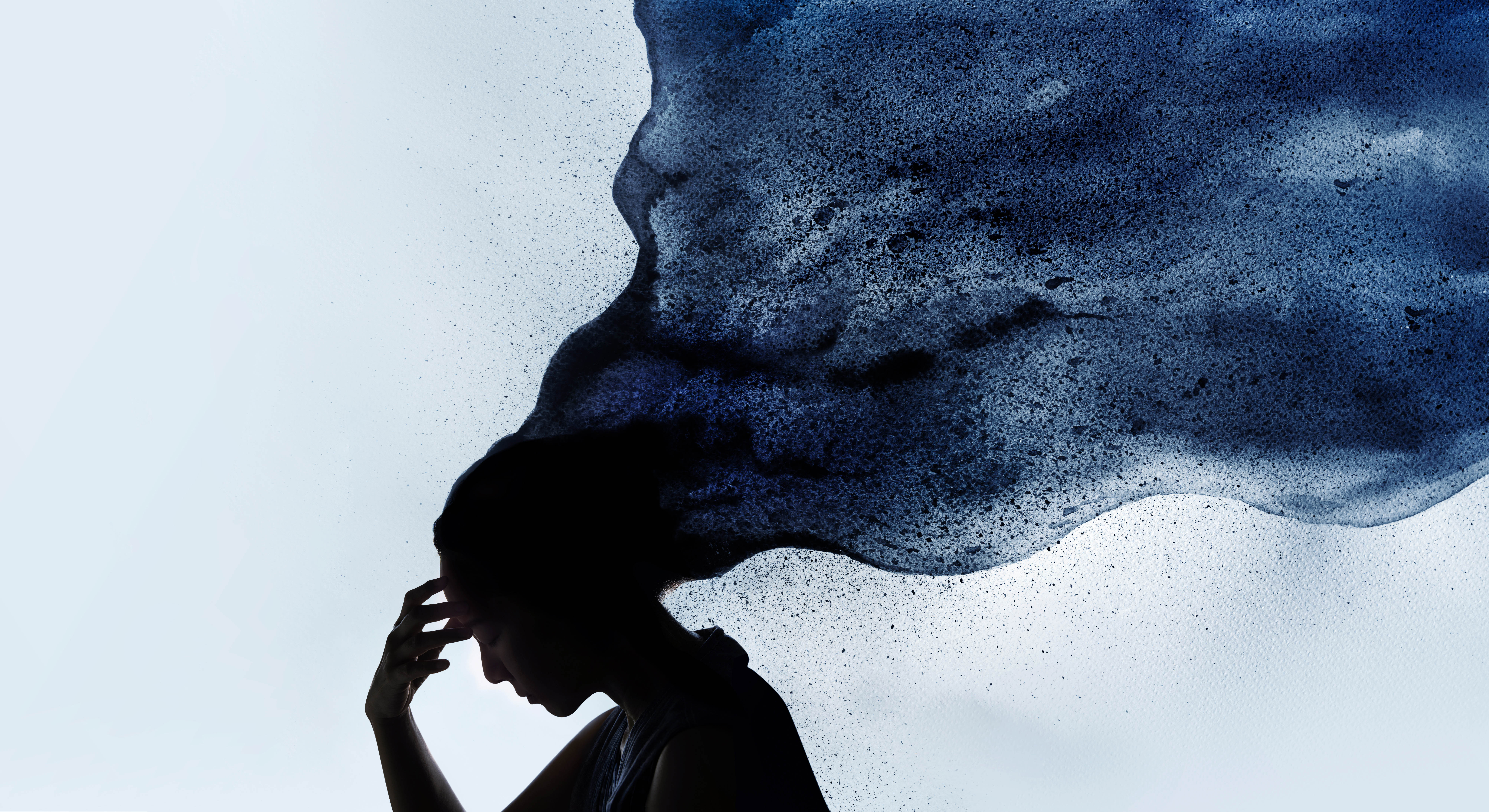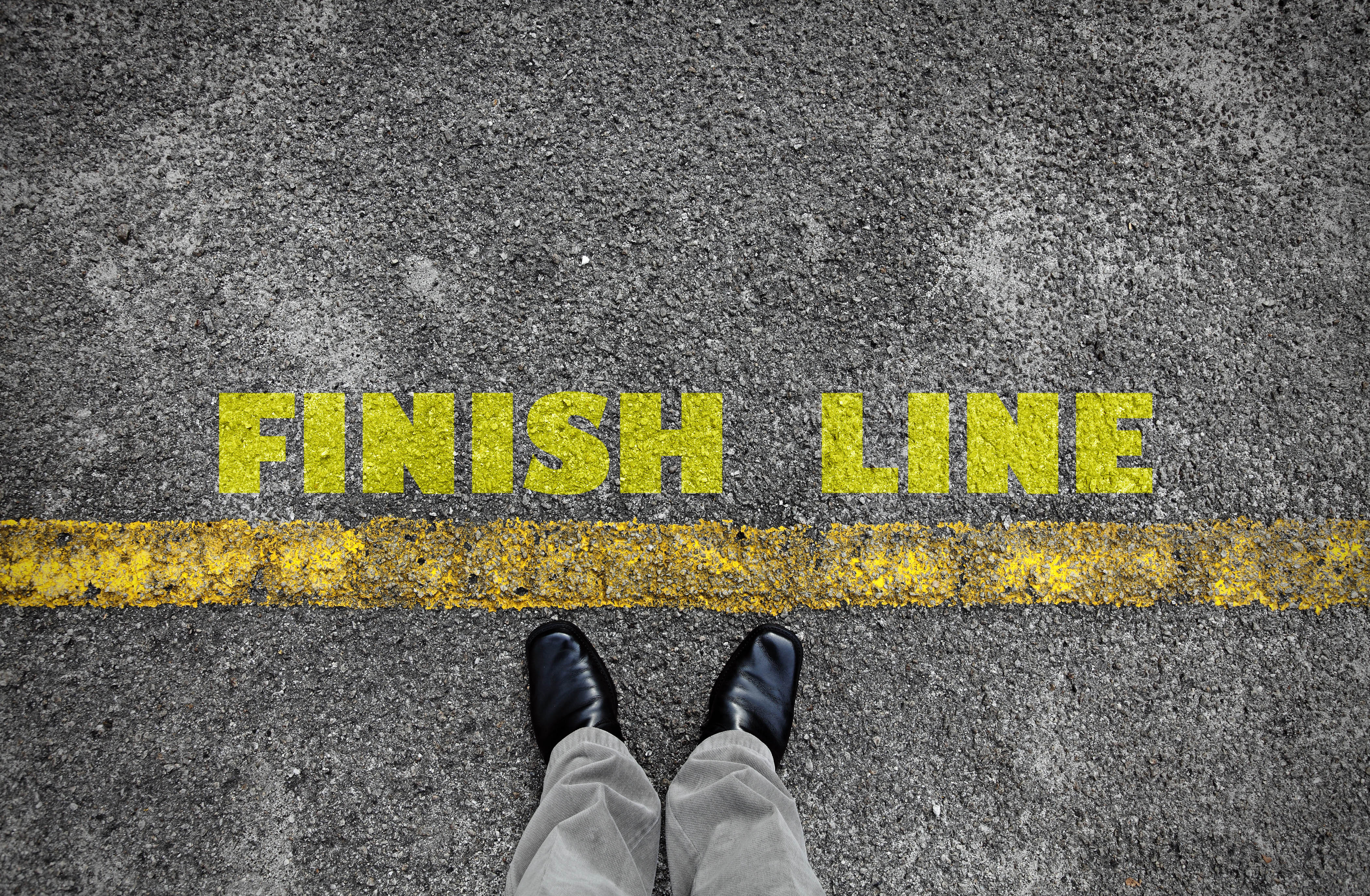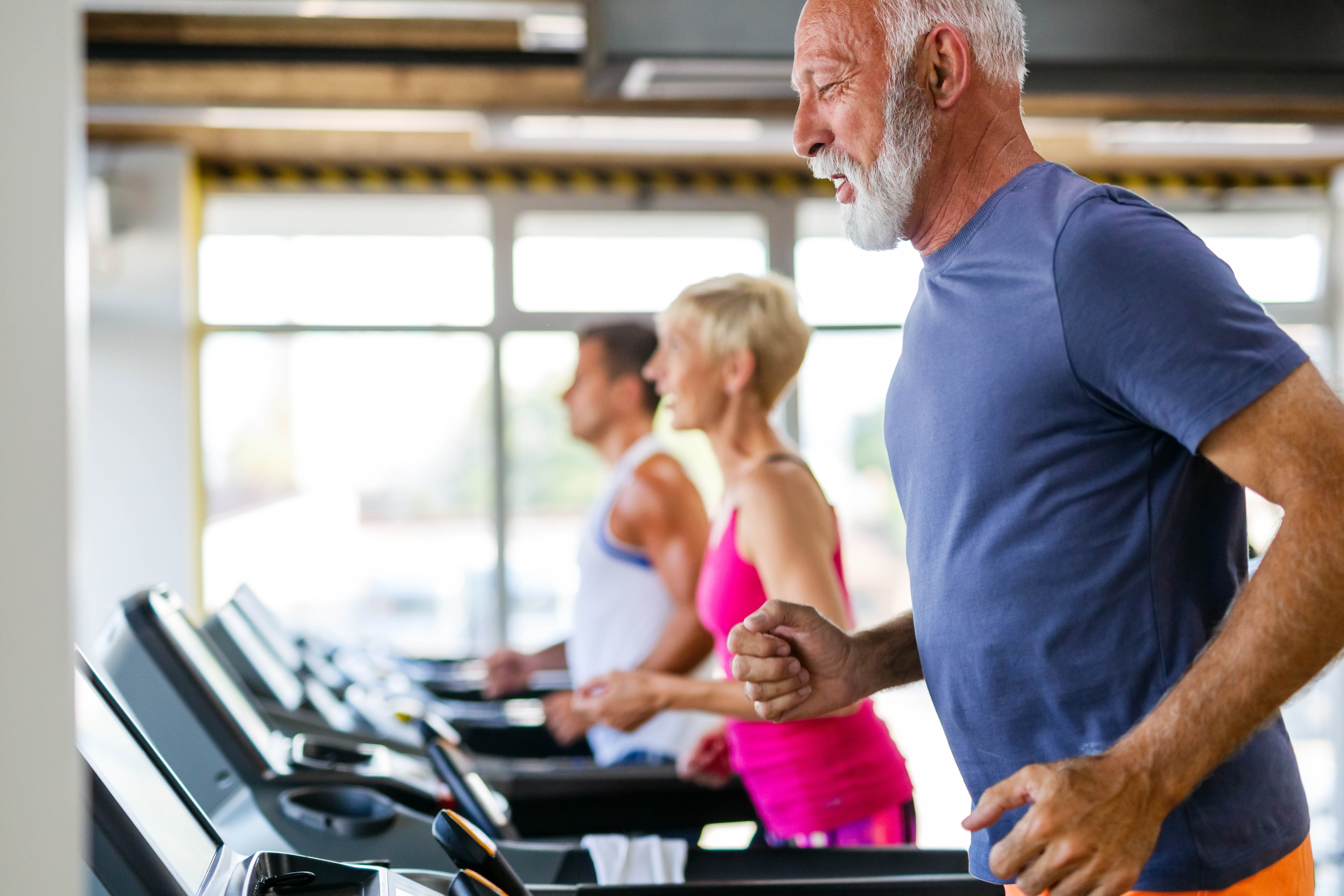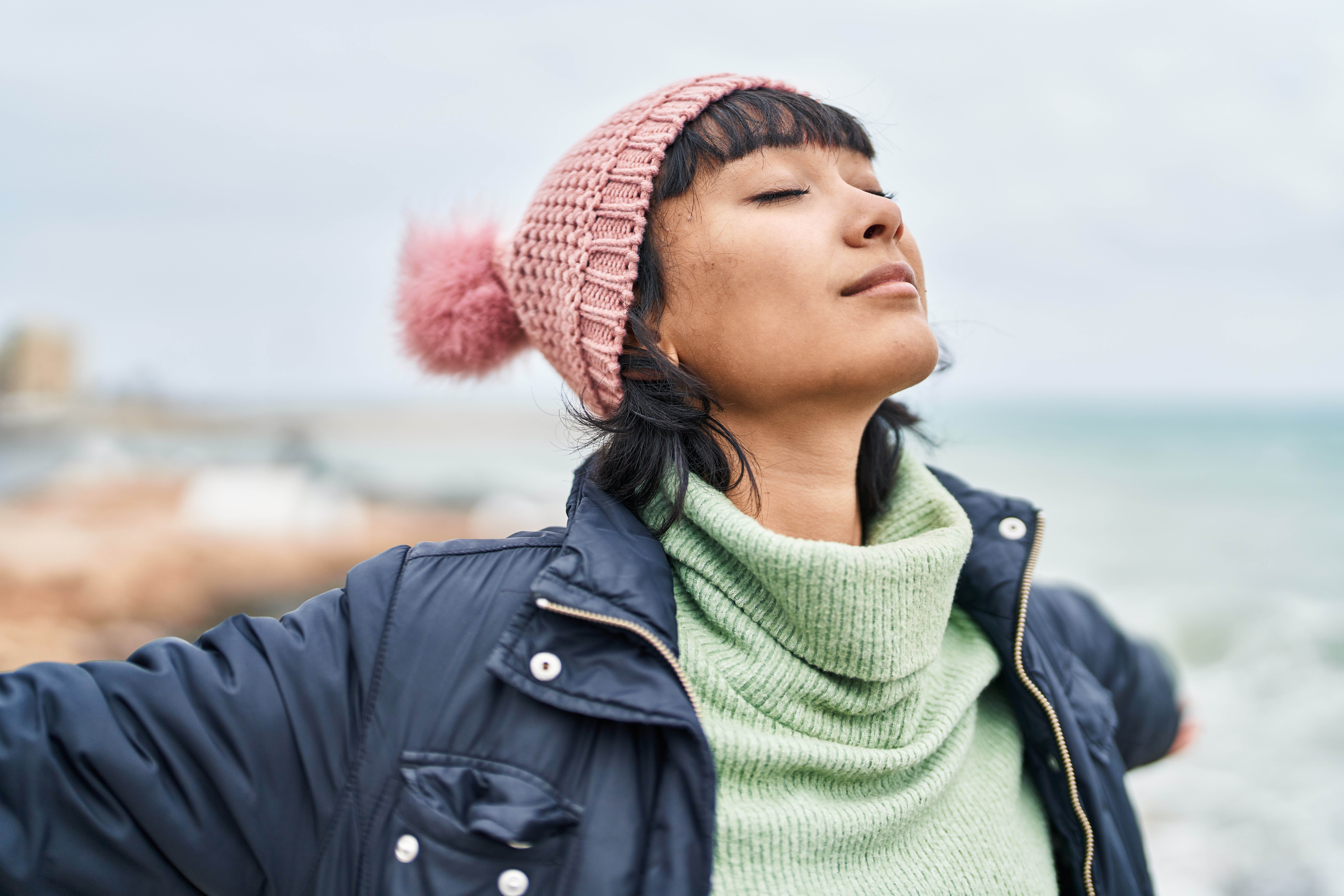Grey Days Don't Need to Make You Blue!
Living Well

Written by: Meg Sharp, Fitness & Wellbeing Consultant, Cambridge Group of Clubs
Wow. Not sure where the sun is currently vacationing but it sure hasn’t been anywhere close to the GTA?!
Less sunlight – less daylight also – is thought to be linked to chemical alterations in our brains that can create or exacerbate challenging feelings including anxiety, fatigue, social withdrawal, and feelings of hopelessness. These feelings can feed into one another and create a rather vicious negative cycle. For example, we know two incredible antidotes to stress and depression are social connection and exercise. But how can you be expected to engage with friends and get your sweat on when you’re feeling exhausted, irritable, and overwhelmed.

Here's the thing about feelings: they happen. Whether you want them to or not. Emotions – including anger, disgust, mirth – are innate and biologically driven. Survival mechanisms in response to specific challenges and opportunities: Anger to help us fight the dragon. Disgust as we eschew the poisonous berry. Laughter to facilitate deeper social connections.
As our world changes rapidly, many parts of our brain are very slow to respond. The Dragon is not real. But we react as if it is. Often our detriment.
So: what to do?
The feelings are going to hit you. Acknowledge them. Simply running from or suppressing emotions might work short term, but it’s extremely counterproductive in the long run. Feeling shame or frustration ultimately makes things worse too.
Dr. Emily Nagoski and Dr. Amelia Nagoski have a really interesting – I think powerful – perspective, that is steeped in some really solid science, and comes with some very manageable, diverse strategies: The Nagoski sisters recognize that emotions have a full cycle. They have a beginning, a middle and an end. For me I look at this as an emotion being an innate spark, which leads to a journey and ultimately needs a resolution.

The Nagoski sisters argue that far too often we don’t complete the cycle of our emotions. They deal specifically with the emotion stress – but I find the perspective a useful lens for many of the emotions that can wreak havoc on our physical and mental wellbeing if we linger with them for too long, and don’t figure out how to resolve them or at the very least put them down and give our bodies a much-needed break.
What I love about this perspective is it assumes there is absolutely nothing wrong with your feelings. They are yours. It’s how you feel. Your brain and body have made specific alterations and you are feeling a certain way. The wave begins… you ride it… and then…? And then WHAT? Do you ride it until you are exhausted? Bury it in the sand? Let it knock you down?
There are alternate ways of dealing with emotions that leave you feeling a little or a lot better in the end: You need to figure out how to send the message to your body and, therefore, ultimately your brain, that the threat, the stress, the cause of anxiety or despair is OVER. Complete. Even just for a short time. This is not the same as ignoring or repressing. Completing the cycle is more active. It involves fully embracing the entire process enveloped in your survival mechanisms. And can be done in a number of ways – both big and small:
Strategies for completing your emotional cycles:
A woman being chased by a lion may summon up enough strength – thanks to her fight and flight reaction – to kill the lion. I assure you that takes a great effort. But when she is done, she is relieved. When you exercise, you send your body the signal that you have fought and won.

Creatures have the luxury of taking long, slow breaths when they are safe and content. Deep inhalations – that expand your ribs and belly – coupled with deliberate exhalations – that contract your diaphragm and pelvic floor – slow your heart, and activate your parasympathetic nervous system. Remember the innate fight or flight response that often accompanies stress, anxiety, and depression? That response is created by your sympathetic nervous system. Your parasympathetic nervous system is the direct opposite: It kicks in when everything is safe and positive. It champions feelings of being grounded, calm, and content. Breathing is one of the simplest and most powerful ways of signaling to your body that the negative emotion has completed its cycle. You are okay. Even if just for a short time. This offers your body and mind a much needed and well deserved break.

Getting enough quality sleep – especially the deep and REM stages – increases serotonin (the "feel good" neurotransmitter), decreases cortisol (the stress hormone), so your brain is less susceptible to feelings of depression and anxiety. Sleep also helps stabilize blood sugars, keeping energy lulls and food cravings at bay.
Centuries ago, our ancestors lived very much in synch with the outdoors. Nature directly provided necessities such as food, water, and shelter. Being outside in many ways was a safer place to be, as you could see predators, incoming storms on the horizon, and plan accordingly. Being outside lowers our blood pressure, pulse rate, and cortisol levels. Exposure to daylight – even the grey kind! – enhances a healthy circadian rhythm helping you achieve more restorative sleeps. Instead of, or in addition to this, you could consider investing in a light therapy box or lamp. Light therapy – considered one of the most effective way of managing symptoms associated with seasonal affective disorder – boosts serotonin, melatonin, vitamin D, and encourages healthier sleep cycles.
It’s simple and true: Laughter – authentic, belly laughter – signals that everything is more than okay. It’s great. Laughter increases dopamine and serotonin in the brain, making us feel fabulous AND relaxed. As mentioned earlier, it’s a reaction that serves to connect us, engender us to others. When we engage in behaviours or responses that facilitate better social connections, our bodies feel safer.

As alluded to above, connecting with others – with our own tribe or a neighbouring one – makes us feel safer. It takes a village after all. We eat better when food has been foraged and hunted from multiple sources. We sleep better when others are ensuring our safety. We heal when we are nurtured by others and allowed to rest. If you are running from the lion, your best bet is to sprint to the village where you can be protected and more bodies can fight. If you have vanquished the lion, you are still likely to run to the village to celebrate! Connecting is a strong signal that the threat is over. Or that you can afford to take a break, while you gather different tools, get sage advice, and subsequently launch yourself back out ready to tackle the stressor head on once again.
If you try these strategies and are not feeling any better, or these strategies feel out of reach, we strongly recommend you speak to your health practitioner. Depression and anxiety are really difficult emotions. There are resources and people who can help. Please don't feel you need to go it alone.